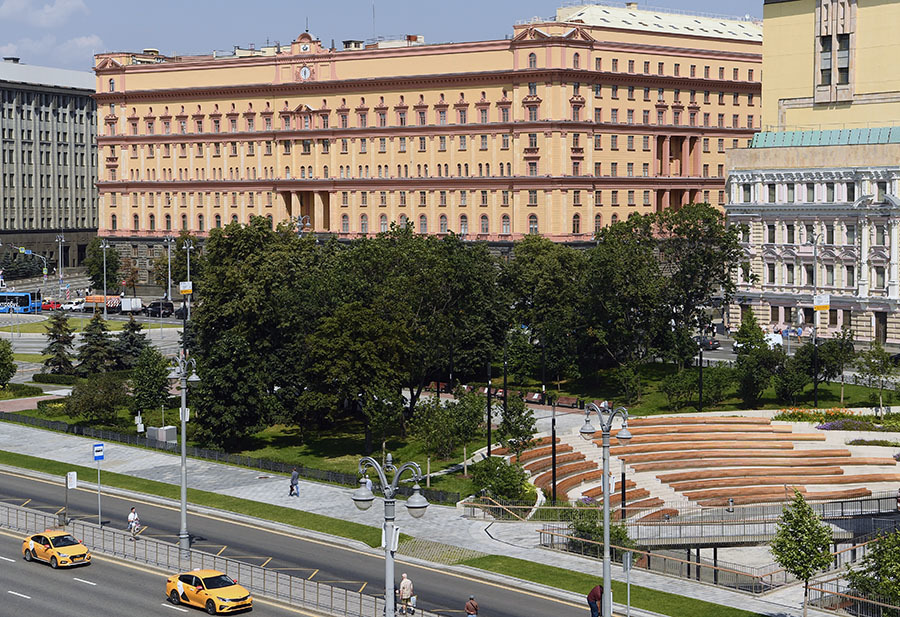The Consul of the Estonian Consulate General in St. Petersburg Mart Lätte, who was declared persona non grata by the Russian side on July 7, tried to obtain information about Russia's plans in the Arctic.
This was reported by the press service of the Public Relations Center of the Federal Security Service of Russia.
The department clarified that Lyatte was detained while trying to get materials of a closed nature from a Russian citizen.
“It has been established that the Estonian diplomat had several meetings with the said Russian.
During the meetings, he showed interest in receiving information about Russia's plans in the Arctic through him, ”the FSB said.
The department emphasized that the consul knew beforehand that the documents were classified.
Let us remind you that the FSB of Russia announced the arrest "red-handed" on 6 July.
The service then noted that such activities "are incompatible with the status of a diplomatic worker and have a clear hostile nature towards Russia."
The building of the Federal Security Service of the Russian Federation (FSB of Russia) on Lubyanskaya Square in Moscow
RIA News
© Alexey Maishev
In turn, the Estonian Foreign Ministry called Lyatte's detention a provocation.
Representatives of the department said that at the time of the arrest, the diplomat was "at a working meeting at the St. Petersburg Polytechnic University."
“Our reaction is that we condemn Russia's actions.
This is illegal, provocative and damaging to the member states of the European Union and the European Union as a whole, ”said Aari Lemmik, head of the public relations department of the Estonian Foreign Ministry.
After that, Ulla Uibo, Charge d'Affaires of the Estonian Embassy in Russia, was summoned to the Russian Foreign Ministry, to whom “a strong protest in connection with the intelligence gathering activities incompatible with the diplomatic status of the consul of the Estonian Consulate General in St. Petersburg Marta Lätte” was declared.
The consul was declared persona non grata.
“He must leave the territory of the Russian Federation within 48 hours,” the foreign ministry said.
In response, the Estonian Foreign Ministry promised to expel the Russian diplomat "as a retaliatory measure."
This information was confirmed by the Prime Minister of the country Kaya Kallas.
On July 15, the Estonian Foreign Ministry announced the expulsion of an employee of the Russian diplomatic mission.
"The Estonian Ministry of Foreign Affairs summoned Russian Ambassador to Estonia Alexander Petrov to give him a note that the diplomat of the Russian Embassy has been declared persona non grata," the ministry said in a statement.
On Tuesday, August 3, the Russian Foreign Ministry also declared the employee of the Estonian diplomatic mission persona non grata on the basis of the principle of reciprocity.
The decision was made in response to the expulsion of the Russian diplomat on July 15.
Estonian Ambassador Margus Laidre was summoned to the department, where he was lodged with a strong protest and handed a note.
“The Estonian side was warned that further escalation of the situation around this episode by Tallinn would lead to inevitable retaliatory steps,” the Foreign Ministry said and stressed that Russia's calls “were not heeded”.
“We offer our Estonian partners to stop, not to complicate even more the situation that they have already aggravated to the limit.
Otherwise, a new decisive response from the Russian Foreign Ministry will follow.
At the same time, the entire responsibility for the deterioration of bilateral relations will fall entirely on the Estonian side, ”the press release says.
Deterioration of diplomatic relations with Estonia and a number of other Baltic countries
In April, Russia demanded that a number of employees of the embassies of Lithuania, Latvia and Estonia leave the country.
Thus, Moscow reacted to the expulsion of Russian diplomats by the Baltic states.
Let us remind you that before this the foreign ministries of Lithuania, Latvia and Estonia announced the expulsion of Russian diplomats as a sign of "solidarity" with the Czech Republic.
Riga and Tallinn decided to send one employee of the Russian embassies, Vilnius - two.
The reason for such actions was the speech of the Czech Prime Minister Andrei Babis, who accused Russia of involvement in the explosions at ammunition depots on the territory of the republic in 2014.
The Czech Republic did not provide evidence of this accusation.
The Russian Foreign Ministry noted that the authorities of these three states "continue to pursue an openly hostile course" towards Moscow, hiding behind "pseudo-solidarity with the indiscriminate actions of the Czech Republic towards Russia."

